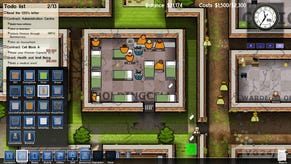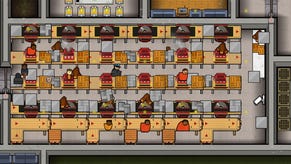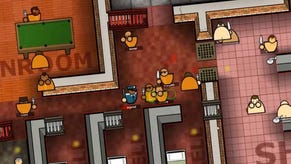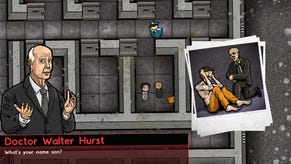A Visitation with the Wardens of Prison Architect
Mark Morris and Chris Delay of Introversion Software talk about the challenges of making a dark, depressing subject into an addictive simulation.
This article first appeared on USgamer, a partner publication of VG247. Some content, such as this article, has been migrated to VG247 for posterity after USgamer's closure - but it has not been edited or further vetted by the VG247 team.
Prison Architect stands as the latest in a line of indie games that, like Papers, Please, attempts to turn a dark, depressing scenario into something approaching "fun."
And, based on what I've played, Introversion Software has definitely succeeded—and most game critics seem to agree. Of course, it helps that Prison Architect leans on a very reliable formula, one similar to the what's found in the many great PC simulation games of the '90s; no one should be surprised that Bullfrog's Theme Hospital and Dungeon Keeper are often listed as Introversion's main inspirations. On the occasion of the game's official release, I sat down with producer Mark Morris and designer Chris Delay to talk about how they turned managing misery into an addictive experience.
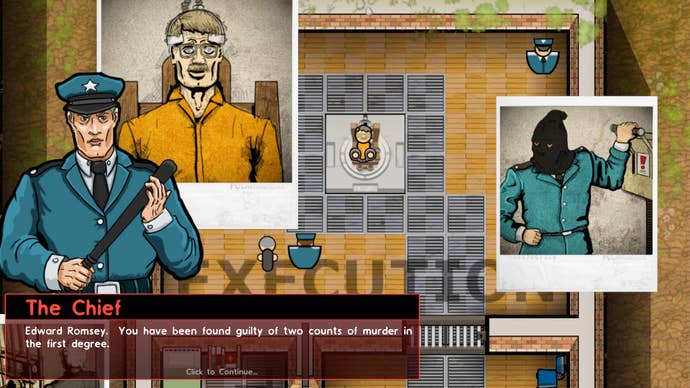
USgamer: So, I’m just wondering: Were you worried about possible controversy based on the subject matter; people thinking you’re making light of it, or not being realistic, or providing a depiction that could mislead players into thinking this is what prison is like? I’m just curious as to what your concerns were and how maybe you tried to cut them off before releasing any content.
Mark Morris: Yeah, very much so. We wanted to make Prison Architect a good exploration of prisons, and how they work and how they function, and the decisions that have to be made about whether to try to reform prisoners, or punish prisoners, or where the balance is struck between the two of them. We had long conversations at the start about… not necessarily controversy. I wasn’t too worried about that. I didn’t really mind if people say “you can’t do that,” but it was more like I didn’t want them to accuse us of just making light of the subject; the game didn’t treat it kind of seriously. What we didn’t want is for it to be a joke, we wanted it to be a bit funny, dark humor, but not be just a complete p**s-take.
USg: Like the Bullfrog style of sims…
MM: Yeah, I mean they didn’t do a bad job, but…
USg: But they were just a comedy game, straight-up…
MM: That’s it, exactly, we didn’t want that. We wanted it to… there’s funny elements in there, that’s important, but we wanted it to be a little bit more of kind of a serious take on the prison system. Certainly, with Death Row, one of the things we spoke about a lot was we didn’t want there to be just a killing factory – you know, players could just stamp down a hundred electric chairs and just have a funnel of death. We just kind of thought “that’s not something that we want to be.”
Chris Delay: We solved it by rolling in the reality of Death Row, which is that the appeals process takes so long… In the game, you always have to make a judgment call, because it never gives you a sense of uncertainty or guilt, and some of them are innocent, and they have an appeals process that they go through, which is what takes so long, which you have to run in your prison. And every time they fail their appeal, you get more confident that they are definitely guilty. But you have to choose at some point, “now it’s time for your execution to go ahead,” and if you get it wrong and it later transpires that they were innocent, or they would’ve been downgraded to, say, imprisonment, then all your Death Row inmates are taken away from you.
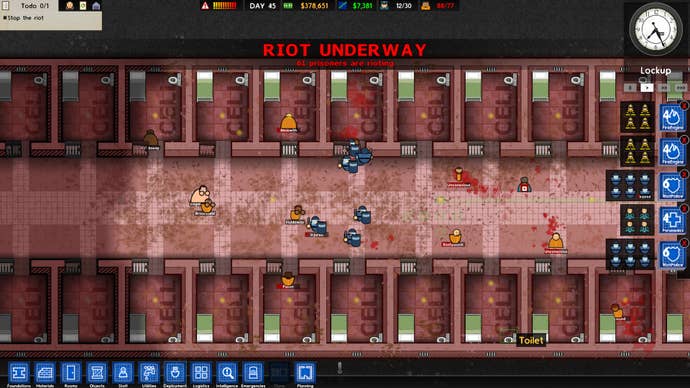
There’s a state-level review, your Death Row program is paused, and you don’t get any more for ages. And so, if you built a huge “death factory” (as one describes) and did an execution or two, you would make that mistake because you hadn’t run the appeals process, and that would be the end of it. So we actually found that applying the real world to the Death Row actually balanced out the gameplay mechanics.

